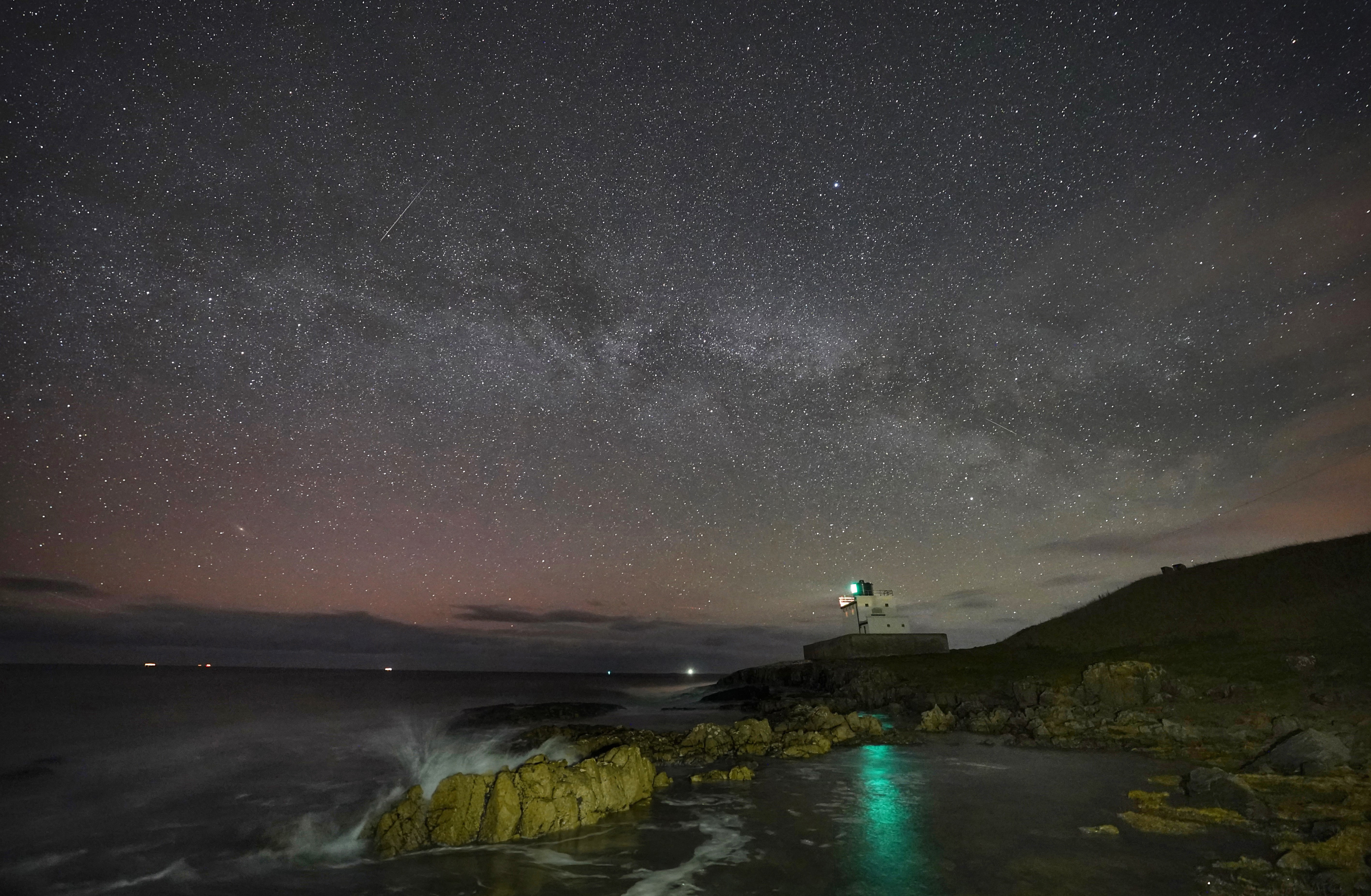
Stargazers in the UK may be able to see the Milky Way in the night sky at dawn if they are far away from bright artificial lights.
Early risers using binoculars will be able to see a part of the galaxy – like a band in the sky – after about 3am when the skies are still dark.
The Herald is only £1 for three months.
This offer ends TONIGHT so click here and don't miss out!
Don Pollacco, professor of physics at the University of Warwick, told the PA news agency: “We live in a galaxy along with a couple of billions of other stars, many like the sun.
READ MORE: Aurora Borealis: Scotland bathed by Northern Lights on Sunday
“You can think of the galaxy as being shaped like two fried eggs back-to-back.
“The solar system sits in the disc about two-thirds of the way from the centre (of the yoke) to the edge.
 The Milky Way core rises over Bamburgh Lighthouse in Northumberland (Owen Humphreys/PA)
The Milky Way core rises over Bamburgh Lighthouse in Northumberland (Owen Humphreys/PA)
“From our position in the disc, if we look in any direction the rest of the disc looks like a band in the sky – this band is the Milky Way.
“If you look with binoculars then the band is full of faint stars.”
Those who are not early risers will be able to see the Milky Way in the summer and mid-winter in the evenings, provided the skies are clear and the light from the moon does not overpower starlight.
3am on Bamburgh beach in Northumberland as the Milky Way moves around over the lighthouse #weather @StormHour @ChronicleLive @PA pic.twitter.com/tJnR8BPG2d
— Owen Humphreys (@owenhumphreys1) March 23, 2023
Prof Pollacco told PA: “In the summer, the centre of the Milky Way is low on the southern horizon from the UK but spreads in a band overhead.
“From a dark site, you’ll see the band is sometimes split in two by dust in the plane of the galaxy.”
READ MORE: Meteor captured ‘bursting through sky’ above Glasgow Airport
Prof Pollacco advises heading to a dark area free from artificial lights to get the best views of the Milky Way.
He said: “You need a clear night with no moon or light pollution. You will not see it in a city.
“It would be best to go to the countryside where the sky could actually get dark and there are no street lights.”



Why are you making commenting on The Herald only available to subscribers?
It should have been a safe space for informed debate, somewhere for readers to discuss issues around the biggest stories of the day, but all too often the below the line comments on most websites have become bogged down by off-topic discussions and abuse.
heraldscotland.com is tackling this problem by allowing only subscribers to comment.
We are doing this to improve the experience for our loyal readers and we believe it will reduce the ability of trolls and troublemakers, who occasionally find their way onto our site, to abuse our journalists and readers. We also hope it will help the comments section fulfil its promise as a part of Scotland's conversation with itself.
We are lucky at The Herald. We are read by an informed, educated readership who can add their knowledge and insights to our stories.
That is invaluable.
We are making the subscriber-only change to support our valued readers, who tell us they don't want the site cluttered up with irrelevant comments, untruths and abuse.
In the past, the journalist’s job was to collect and distribute information to the audience. Technology means that readers can shape a discussion. We look forward to hearing from you on heraldscotland.com
Comments & Moderation
Readers’ comments: You are personally liable for the content of any comments you upload to this website, so please act responsibly. We do not pre-moderate or monitor readers’ comments appearing on our websites, but we do post-moderate in response to complaints we receive or otherwise when a potential problem comes to our attention. You can make a complaint by using the ‘report this post’ link . We may then apply our discretion under the user terms to amend or delete comments.
Post moderation is undertaken full-time 9am-6pm on weekdays, and on a part-time basis outwith those hours.
Read the rules here